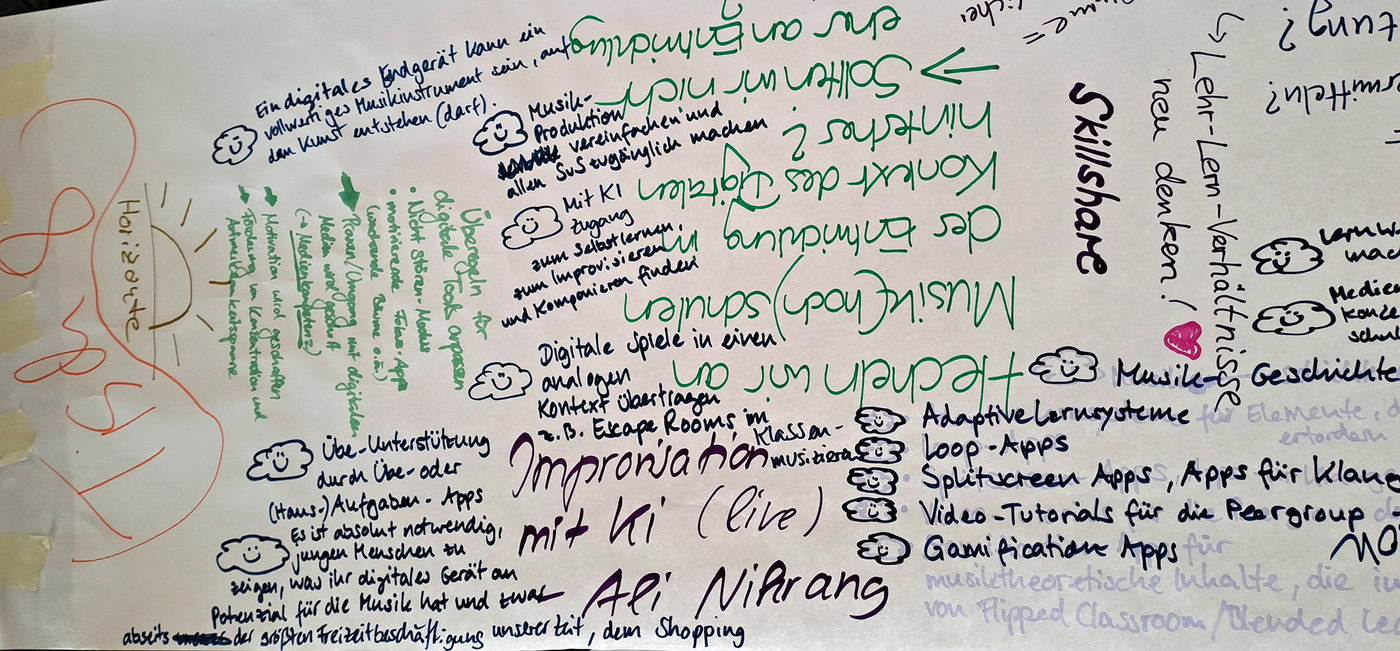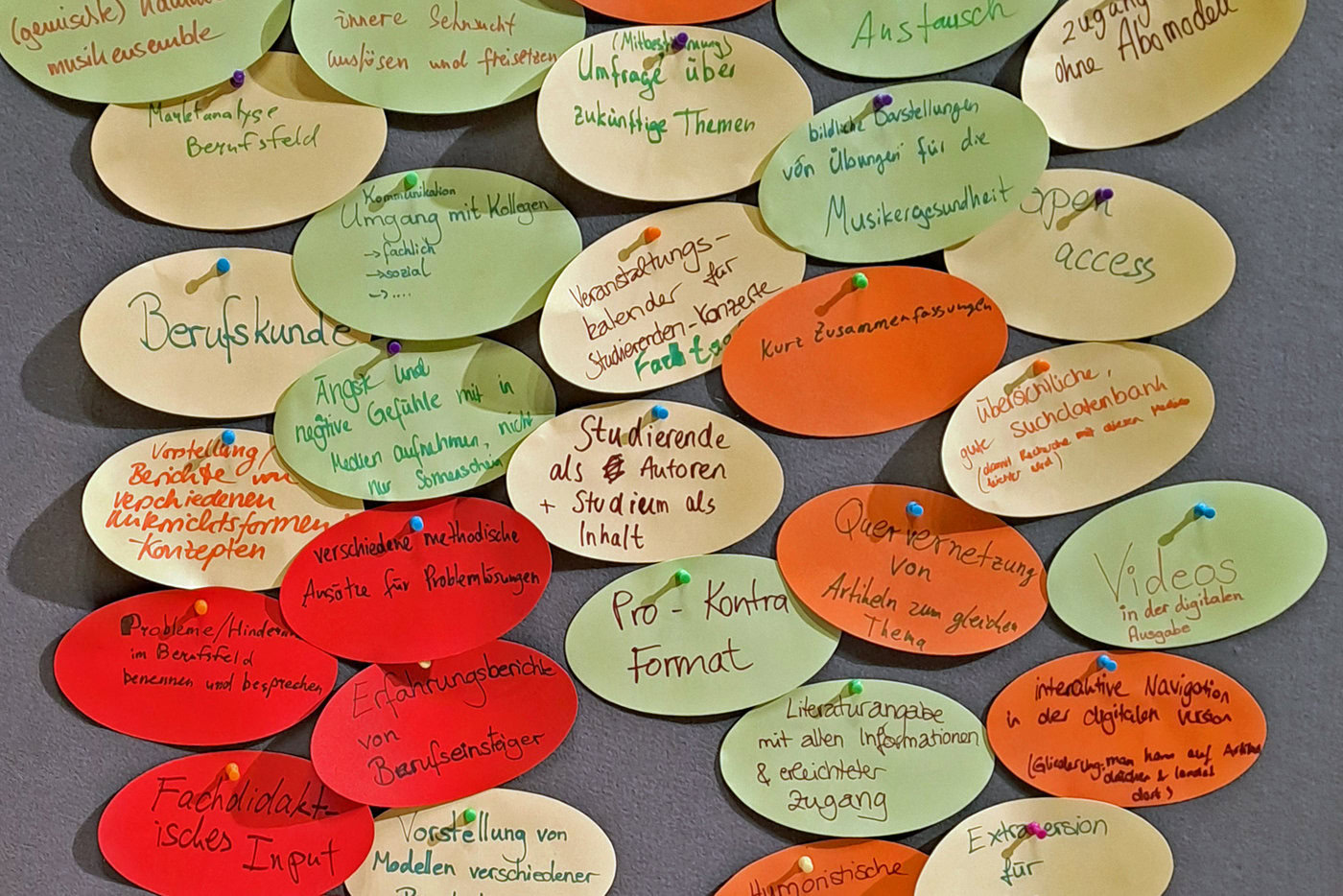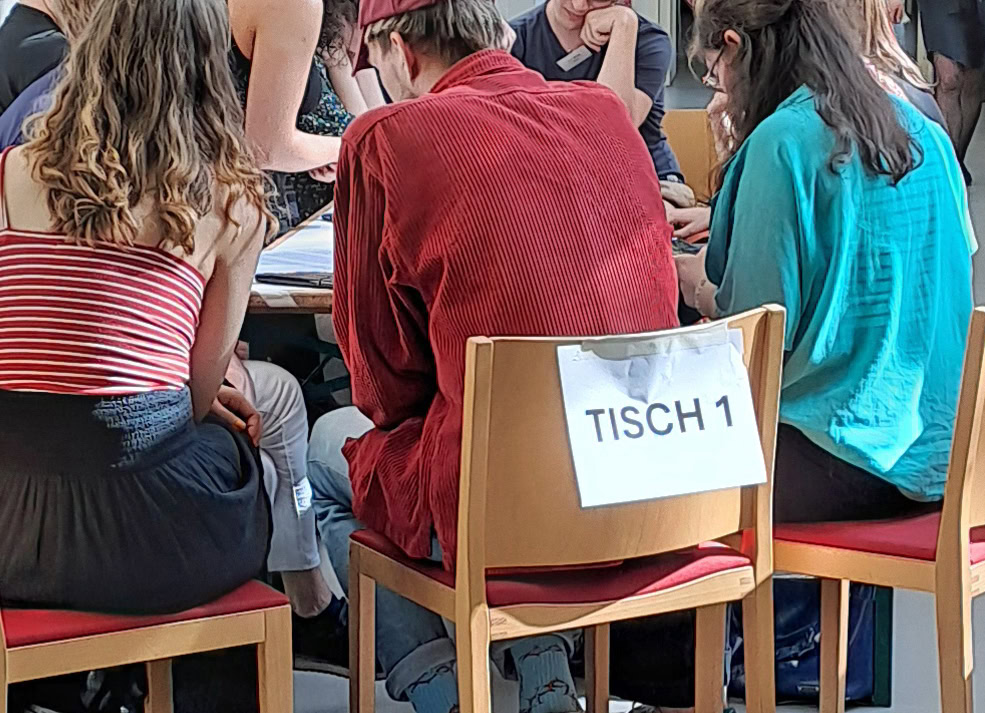Fit for the future? - Berlin conference on the development of (higher) music schools
Fit for the future? This casual question was the theme of the conference on "The development of (higher) music schools in the 21st century from an artistic and music education perspective" on May 3 and 4 in Berlin. Students created a dynamic atmosphere in the audience and on stage. Shortly afterwards, the study "Mulem-ex" was published on the background to the declining interest in music teaching courses in Germany.

Getting moving, imagining colorful future spaces and returning to the present: The "actions" by Stefan Linne, a mime artist and actor in Berlin, spanned from the beginning to the end of the meeting. The organizers were pleasantly surprised by the large number of participants from all generations. Teachers, students and heads of music schools, conservatoires, associations and academies were invited, mainly from Germany. Student delegations from all of Germany's music education faculties refreshed the many participatory formats. To kick things off, young and old learned to juggle with three colored cloths under Linne's guidance in no time at all. This activity symbolized a central aspect of the conference, namely getting away from a black-and-white view in professional music education.
Finally being able to bridge the gap between artistic and pedagogical orientation was a palpably urgent concern of the audience and speakers.
The specialist medium of the future
The Faculty of Music at the Berlin University of the Arts organized the conference in cooperation with the Mannheim State University of Music and Performing Arts. Ivo Berg, Barbara Busch, Christina Fassbender, Isabelle Heiss, Sebastian Herbst and Barbara Metzger were in charge of the project. The Strecker Foundation acted as sponsor. It has owned the music publisher Schott since the end of 2023. This in turn has been publishing the magazine practise&music out. Since its foundation, it has played a central role in reflecting on various aspects of music education and the development of music schools and colleges. The anniversary was not only celebrated with "champagne and seltzer". Rather, it provided the impetus for a think tank on the future of specialist media. Editor Rüdiger Behschnitt and his colleague Kerstin Weuthen collected many ideas with the audience in well-organized brainstorming sessions on where the journey could take us, provided that human and financial resources do not play a role. As expected, no silver bullet emerged; the media landscape is currently changing too quickly and unpredictably. Short, clear, correct, specific, free and easily accessible - this is how information should be, especially from the students' point of view.

Eight areas of tension
The question that gave the symposium its title, which took place in the rooms of the University of the Arts, was already fanned out in the invitation to tender using eight pairs of opposites. They formed the framework of the events and were explicitly discussed in a "World Café":
1. elitist vs. participatory? Against the background of which guiding principles, which people can learn which music at (higher) music schools and how?
2. Personal development vs. career orientation? Should the development of music schools and colleges focus primarily on the personal development of students or on the future professional field?
3. tradition vs. innovation? Does the future of music schools lie in preserving or overcoming traditions?
4. Lonely vs. together? Will music schools and colleges become superfluous without comprehensive (external) cooperation?
5. Art vs. science? What role do science and art play in the development of (higher) music schools?
6. Sense vs. nonsense? To what extent are mission statements suitable for the further development of music schools and colleges?
7. Closeness vs. distance? What role do proximity and distance play in teaching at music schools and colleges?
8. Analog vs. digital? What significance do analog and digital forms of communication and expression have both in the context of teaching at music (higher) education institutions and in relation to musical performance and music production?
Squeezed around eight tables, the participants spent half an hour exploring these areas of tension. They had had the opportunity to sign up in advance for three of the questions that concerned them most. The "World Café" lasted an hour and a half in total. The result was impressive: many square meters of paper full of colorful scraps of thoughts.

Keep the questions moving
The presentations by Barbara Stiller, Martina Krause-Benz, Ulrich Mahlert, Wolfgang Rüdiger and Tobias Seidel brought further facets to the discussion and stimulated individual discussions during the breaks. Participants were able to explore their specific concerns in seven workshops. Students and alumni of the Berlin University of the Arts repeatedly built bridges between intellectual reflection and artistic presentation with their performances.
There were no clear answers to the many questions, but perhaps the insight that the discussion between the various players must be continued with the greatest possible openness. At the end, Stefan Linne and the students led the participants back to themselves and their own ideas of a sustainable music (high) school.
On the website of practice&music (https://uebenundmusizieren.de/artikel/zukunft-im-blick/uebenundmusizieren.de) documents for some of the events at the "Fit for the future?" conference have been uploaded. A printed publication will also appear later.
International problem child school music
One month after the Berlin conference, the study Mulem-ex - Music teacher training - an explorative study was published. The aim was to find out why young people in Germany decide against studying to become music teachers. There is a shortage of thousands of trained teachers in the field of school music and the number of new students enrolled on the relevant courses is falling sharply. In a nutshell, the study cites the following reasons for the development of a negative career image: those with an affinity for music perceive the aptitude test geared towards European classical art music as a high hurdle; many respondents feel insufficiently prepared for everyday working life and see few opportunities for development; numerous potential students fear the high workload in everyday working life due to the time-consuming preparation of lessons and the simultaneous lack of opportunities for musical-artistic activities.
The training situation in Germany can only be compared with that in Switzerland to a limited extent. Anyone wishing to teach music in general education schools in this country needs a diploma from a university of teacher education (PH) or a degree in school music I or, for grammar schools, school music II (music universities). However, there is a lack of meaningful figures, for example on the deselection or non-selection of certain subjects or degree programs at the PHs or on the retention of graduates at PHs and MHs. In addition, the employment contexts for music teachers at the school level below, in the area of music & movement, are very heterogeneous. Enquiries to the Chamber of Universities of Teacher Education at Swissuniversities and the Conference of Swiss Music Universities (KMHS) have shown that no well-founded data is available in Switzerland to date. However, the KMHS would welcome a comprehensive survey.
Link to Mulem-ex - Music teacher training - an explorative study









